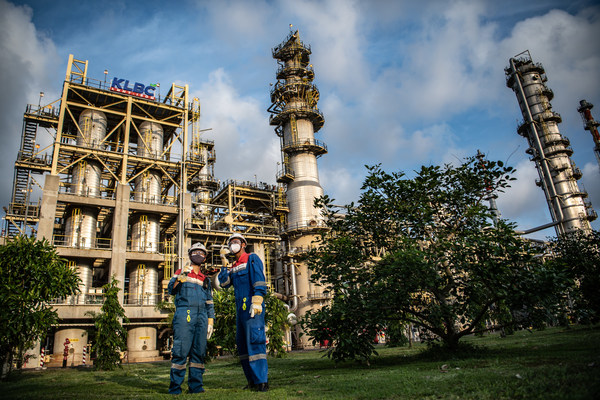Committed to ESG, Pertamina Becomes Pillar of Achieving Indonesia’s Net Zero Emissions Target
JAKARTA, Indonesia, Dec. 30, 2021 /PRNewswire/ — Sri Mulyani Indrawati, Minister of Finance, believes that PT Pertamina (Persero), the largest Indonesian State-Owned Enterprise (SOE) in the energy sector, is a pillar in reaching the Government of Indonesia's target of Net Zero Emissions by 2060.

Implementing ESG in all its operations, Pertamina is committed to achieving the Government's target of Net-Zero Emission and the development of the new and renewable ecosystem in Indonesia
"As an energy company, Pertamina has a big responsibility to be a pillar of achieving net-zero emissions," she said during the 2021 Pertamina Energy Webinar in Jakarta, Tuesday (7/12/2021).
According to Sri Mulyani, the net-zero emissions target applies the principles of affordability and fairness. It means that carbon emitters have a greater responsibility than others. The energy sector has contributed to reducing carbon emissions and is second only to forestry and other land use (FoLU).
According to the Minister of Finance, the FoLU sector is expected to reduce emissions by 700 million tons of CO2e for IDR 90 trillion to fulfill the emission reduction target of 41% by 2060. Meanwhile, the energy sector with contributions is targeted to reducing 450 million tons of CO2e requires up to IDR 3,500 trillion. "It is very different. Energy is a costly sector. However, it is important for the people, and it is important to reduce C02 after FoLU," said Sri Mulyani.
Meanwhile, the Secretary-General of the Ministry of Energy and Mineral Resources, Ego Syahrial, said that Indonesia had determined to reduce greenhouse gas emissions from the energy sector by 314 million CO2e with its efforts and 466 million tons of CO2e with international assistance. According to President Joko Widodo's direction at COP 26 in Glasgow, Scotland, Indonesia can contribute to the NZE target achievement. One of the efforts made is Solar Power Plants (PLTS) utilization of both Small-Scale PLTS, Floating PLTS, and Large-Scale PLTS.
"On behalf of the Ministry of Energy and Mineral Resources, we appreciate Pertamina for starting PLTS utilization, either through the Green Energy Station program at petrol stations, installation in office buildings, and other facilities," he said.
Iman Rachman, Director of Strategy, Portfolio, and Business Development (SPPU) of PT Pertamina (Persero), stated that as a national energy firm and Indonesia's largest state-owned enterprise, Pertamina plays a significant role in spearheading the country's energy transition and emission reduction. Pertamina supports the government's steps in realizing net-zero carbon emissions by 2060.
"To support Indonesia in realizing net-zero emissions, Pertamina has targeted to reduce carbon emissions to 81.4 million tons of CO2e by 2060," he said.
According to him, Pertamina has prepared an energy transition through the 2020-2024 Company's Long Term Plan (RJPP) with a target of reducing CO2 emissions by 29% by 2030. Until 2020, Pertamina has contributed to emission reductions of 27.08 percent from the baseline in 2010, which is quite significant compared to the national target of 26 percent.
Iman added that Pertamina's aspirations in implementing green and sustainable energy were translated into eight pillars of the energy transition. It includes increasing the specifications of Pertamina's refineries to produce environmentally-friendly fuels, further development of bioenergy in the form of biomass and bioethanol, optimizing installed geothermal capacity, and developing green hydrogen.
Pertamina also takes a strategic role in the production and development of the battery ecosystem in Indonesia. Pertamina is also committed to strengthening integrated gasification, helping our customers in the transportation, household, and industrial sectors to reduce emissions. In power generation, he stated that this SOE also increases new, renewable, and low-carbon energy utilization, thus reducing our carbon footprint.
"We are also developing carbon capture, utilization, and storage (CCUS) by utilizing carbon to increase production in several oil and gas fields as well as being a focus in implementing green energy in the company," he concluded.
.gif)








